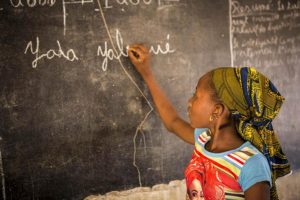THE INTERNATIONAL DAY OF EDUCATION.
Education is a right for every child all around the world and it’s for the public good. In 2022, the theme of the international day of education will be “Changing Course, Transforming Education”. It is celebrated on the 24th of January every year. The United Nations General Assembly in 2018 adopted a resolution declaring January 24th as an International Day of Education. This was to mark the importance of education in peace and development. To reinforce transformative actions for equitable, inclusive, and quality education for all as it was co-authored by Nigeria and other member states. In addition, it is also an opportunity to endorse the role of education for all. Indeed, it’s the fourth year of celebrations since the first-ever in 2019.
The objectives of International Day of Education 2022 are listed below.
- Reassure commitments and follow-up on measures taken to protect education through increased inclusion and reduced drop-out.
- Celebrate steps in the right direction taken by educators, governments, and organizations from grassroots to global efforts. This includes partnerships and associations demonstrating the possibility to refurnish education to the principles of equity and relevance.
- Highlight effective law practices and equitable finance policies for education that effectively target the most disadvantaged section via PEER, a tool featured on UNESCO’S Global Education Monitoring Report Website.
- Give a voice to the pandemic generation to help them express their aspirations and concerns in the face of tomorrow decided by the economic recession and climate.
Around the world, 285,000,000 children don’t attend school moreover 617,000,000, can’t read nor do basic math. In the sub-Saharan region, 40% of girls are unable to complete lower secondary school. And 4 million children and refugees are out of school.
The COVID-19 pandemic has caused chaos in education worldwide. About 1.6 billion school and college-going students had their studies interrupted at the peak of the pandemic and it’s not over yet. The regular closing of schools, exacerbating exacerbates the global learning crisis-affected over 31 million students. Now is the time to talk action. Increase from 53 to 70 percent in developing countries among children who are unable to read.
The confusion in education extends beyond issues of access and inequality. With the rapid development of technology, the world is changing at a dizzying pace. Even, there is a climate emergency and a widespread loss of trust between people. And institutions, along with unprecedented changes in the world of work. Education systems struggle to provide us with the knowledge, skills. And valves we need for a greener, safer, and better future.
It is a crucial enabler for the entire 2030 Agenda for Sustainable Development. Education is SDG4 “ensure inclusive and equitable quality education for all and promote lifelong learning opportunities for all.” So now is the right time to renew our commitment to education. We must invest in comprehensive plans for helping students recover from learning losses. We must place education at the center of broader recovery efforts aimed at transforming economics and societies and accelerating progress on sustainable development.
it means building financial solidarity with developing countries and undertaking a process of reflection and analysis. The goal is to identify how national systems can evolve and transform between now and 2030. United Nations Secretary-General Antonio Guterres urged everyone to unite around education as a public good and a top political priority for recovery and beyond.
According to UNESCO, the purpose of the International Day of Education is to showcase the most significant changes that need to be nurtured. We must do this to ensure that everyone has access to education. We will discuss how to strengthen education as a public good and for the common good. Steering the digital transformation, supporting teachers, safeguarding the planet, and unlocking every person’s potential to contribute to collective well-being and our shared home.

WHY DO WE NEED EDUCATION?
Education will help in reducing the inequalities among people and improve health standards around the world.
We need education to eradicate poverty in developing countries. Improvement in the standards of living through creating jobs.
To achieve gender equality, there must be quality education for all boys and girls
Improved human rights. Thus a solution to early marriages and early pregnancies.
Education will empower children to achieve their goals and lifetime success.
OUR CALL TO ACTION
tuyambe.org calls upon everyone around the world to create awareness of the importance of education. Communities need to understand how far one can go after receiving an education. Tuyambe.org strives to ensure orphans and vulnerable children receive a quality education, with the help of sponsorships and donations. Through our community outreaches, we create awareness. As well as empowering women in societies to become skilled and ultimately breaking the poverty circle.
